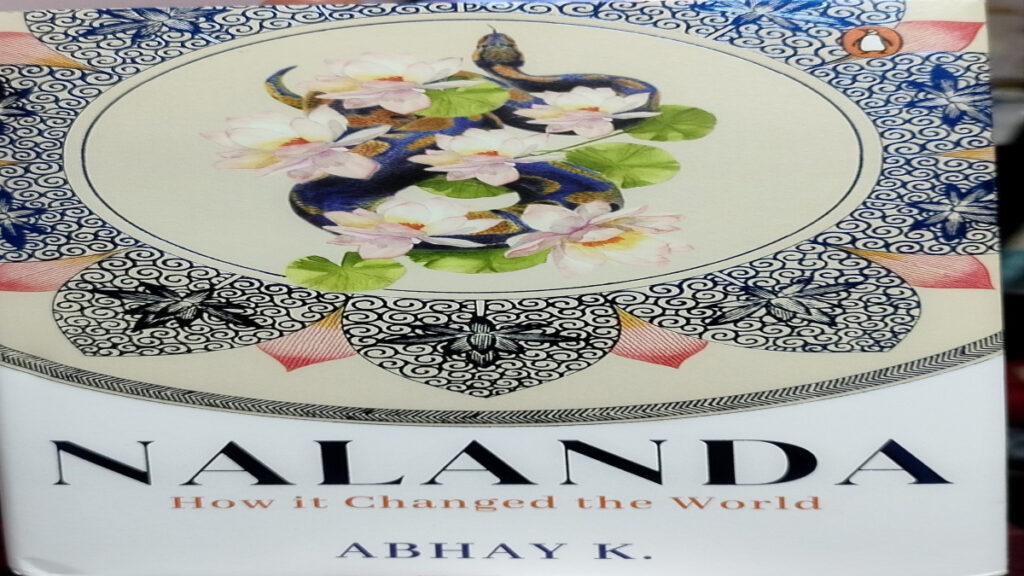
Nalanda by Abhay K. is a book that attempts to explore the lost academic and scholarly glory of India which influenced the founding of varsities such as Oxford and Cambridge
I ordered Abhay K.’s “Nalanda” based on Shashi Tharoor’s recommendation on X, the new version of Twitter. Here’s a breakdown of the key elements that the book has dealt with:
Historical scope
- The book provides a comprehensive historical account of Nalanda Mahavihara, spanning its rise, fall, and re-emergence.
- It offers a deep dive into the institution’s millennia-long journey.
Intellectual contributions
It thoroughly examines Nalanda’s contributions to various academic disciplines, including:
- Science
- Mathematics
- Philosophy
- Art
- Architecture
- Poetry
Scholarly figures
- The book highlights the influential scholars who contributed to Nalanda’s esteemed reputation.
- It also acknowledges the foreign scholars who visited this renowned center of learning.
Historical inquiries
“Nalanda” addresses significant historical questions, such as:
- The institution’s founding
- The subjects taught there
- The reasons for its decline
- The nature of Nalanda as a “university” in the historical context
Legacy and relevance
- The book emphasizes Nalanda’s lasting impact on global thought.
- It underscores Nalanda’s role in pioneering the concept of a residential university.
- It also draws parralels to the relevance of Nalanda to modern indian higher education.
Author’s style
- Abhay K. presents a well-researched and accessible narrative.
- His writing is described as a blend of scholarly rigor and poetic eloquence.
- The book is praised for being engaging and informative.
Critical reception
- The book has received high praise from notable figures, indicating its quality and significance.
- It is seen as an important contribution to the understanding of ancient Indian history.
- In essence, “Nalanda” is recognised as a valuable work that provides a detailed and engaging account of a crucial institution in world history.
- Now, let’s ddeep deeper for a more detailed appraisal of Abhay K.’s “Nalanda,” drawing from the available information.
“Nalanda” is not merely a historical chronicle; it’s a meticulously crafted tapestry, weaving together the threads of ancient India’s intellectual zenith. The book undertakes the ambitious task of resurrecting the grandeur of Nalanda Mahavihara, an institution that stands as a testament to the nation’s profound contributions to global scholarship.
A scholarly expedition
The author embarks on a scholarly expedition, navigating the labyrinthine corridors of history to illuminate Nalanda’s multifaceted legacy. He doesn’t shy away from the complexities of the subject, tackling the often-murky origins and the eventual, tragic decline of this venerable centre of learning. The narrative is richly detailed, painting a vivid picture of Nalanda’s golden age, where scholars from across Asia converged to partake in the pursuit of knowledge.
Illuminating the intellectual landscape
One of the book’s strengths lies in its exploration of the intellectual landscape that flourished within Nalanda’s walls. Abhay K. meticulously catalogues the diverse disciplines nurtured there, from the rigours of Buddhist philosophy to the intricacies of mathematics and astronomy. He pays homage to the luminaries who graced Nalanda, their names echoing through the ages: Nagarjuna, Aryabhata, Xuanzang. The book’s capacity to bring these figures to life, situating them within their historical context, is particularly commendable.
Unravelling historical mysteries
Abhay K confronts the enduring mysteries surrounding Nalanda with a discerning eye. He grapples with the question of its precise nature – was it a university in the modern sense? – and examines the factors that contributed to its eventual destruction. The author’s approach is both scholarly and speculative, acknowledging the gaps in our knowledge while offering plausible interpretations based on available evidence.
A legacy reclaimed
Beyond its historical significance, “Nalanda” underscores the institution’s enduring relevance. Abhay K. argues that Nalanda’s ideals – its commitment to inclusivity, its emphasis on interdisciplinary learning – resonate powerfully in contemporary India. He prompts reflection on the nation’s educational landscape, urging a revival of the spirit that once animated Nalanda’s hallowed halls.
The author’s craft
Abhay K.’s writing style is a blend of scholarly rigour and poetic eloquence. He possesses the ability to render complex historical details accessible to a broad readership, without sacrificing intellectual depth. The book is well-researched, drawing upon a wide range of primary and secondary sources, and is presented in a clear and engaging manner.
Final impression
“Nalanda” is a significant contribution to the historiography of ancient India. It is a book that informs, enlightens, and inspires. Abhay K. has succeeded in resurrecting the spirit of Nalanda, reminding us of its profound impact on the world and its enduring relevance to our times. It is a work that deserves to be widely read and discussed.
The book’s reception from notable figures such as Shashi Tharoor and William Dalrymple only solidifies it’s importance – a reason why I bought this book.






